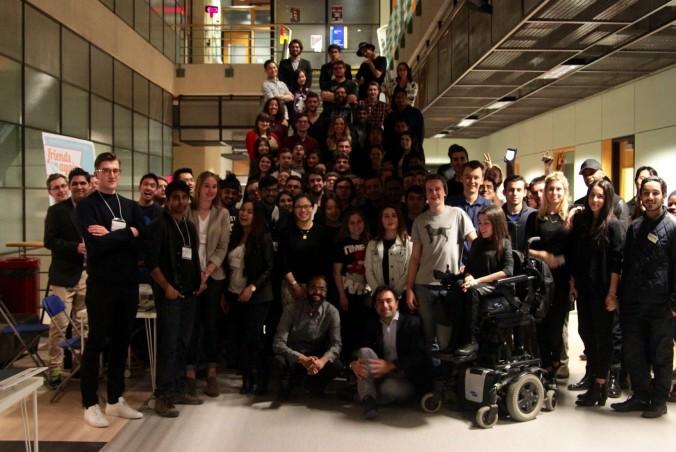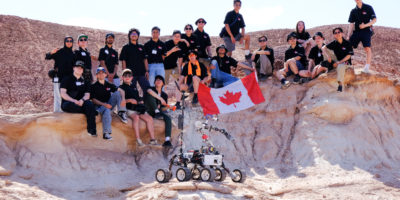By Julia Knope
From rating roommates, to exercise for kids, Ryerson students showcased a variety of products with a wide range of purposes at the Ryerson Super Course Showcase, on April 6.
The Super Course lasts for one semester and ends with 17 groups of students creating a computer science prototype in the Transmedia Zone that could potentially be used as a business model in the future.
“The course was incredible. It teaches you how to be an entrepreneur while mixing with people from other [diciplines],” said Caylee Kalisky, a student in the course and co-creator of JumpIn.
JumpIn is an interactive 3D video game, using a pulse sensor to track the heart rate of the participants, which range from ages five to 10. As the child navigates through the game, they must complete different physical activities that cater to their heart rate — if their heart rate is low, they will be given harder physical tasks and if their heart rate is high they will be given easier tasks to complete.
“We want to take their love for video games and mesh it with physical activity,” said Kalisky. “Technology is growing so much in society.”
The Super Course works with programs like Radio and Television Arts, New Media, Masters of Media Production, Computer Science and Masters of Digital Media.
Hossein Rahnama, the leading professor of the Super Course, said that this course allows students to “learn from each other.”
“It’s a high pressure environment,” Rahnama said. “It reflects the industry and prepares you for the fast pace of the digital media market.”
The important feature of the course, he said, is that students can work as entrepreneurs on their products without worrying about the pressures that would come with owning a company, such as employees, taxes, cash balances and money.
“You don’t have to worry about these problems. The fail-safe environment prepares students to create a company and think innovatively,” Rahnama said.
Friends Again, another showcased prototype, is an app created by Digital Media, New Media and Computer Science students that scores roommates based on whether or not they have completed their day to day chores throughout the year.
“If your score is low, it’s your own fault,” said Aaron Labbe, a second year New Media student.
Labbe said that in the future, their team hopes to implement this app within the residences at Ryerson, so people can research their roommates ahead of time “so you know what you’re in for.”
Other products range from measuring oil wastage in restaurants, to tracking the medicine dosages of elderly people.













Leave a Reply